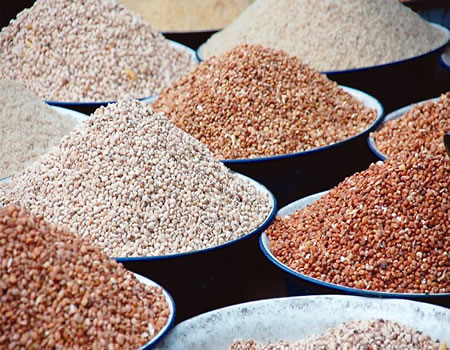As price of food items are on the rise in the country the National Bureau of Statistics (NBS) has announced that consumer price index, (CPI) which measures inflation increased by 11.28 percent (year-on-year) during the same month.
Reps move to revert Nigeria to parliamentary system of govt
This rise in the food index it said was caused by increases in prices of Bread and cereals, Milk, cheese and egg, Fish, Vegetables, Fruits, Oil and fats, Potatoes, yam and other tubers.
On month-on-month basis, the food sub-index increased by 0.90 percent in November 2018, up by 0.08 percent points from 0.82 percent recorded in October 2018.
Average annual rate of change of the Food sub-index for the twelve-month period ending November 2018 over the previous twelve-month average was 14.80 percent, 0.56 percent points lower from the average annual rate of change recorded in October (15.36) percent.
On CPI, NBS reported that the is 0.02 percent points higher than the rate recorded in October 2018 (11.26) percent.
“On month-on-month basis, the Headline index increased by 0.80 percent in November 2018, up by 0.006 percent points from the rate recorded in October 2018 (0.74) percent.
“Percentage change in the average composite CPI for the twelve months period ending November 2018 over the average of the CPI for the previous twelve months period was 12.41 percent, showing 0.37 percent point decline from 12.78 percent recorded in October 2018.
The bureau said urban inflation rate increased by 11.61 percent (year-on-year) in November from 11.64 percent recorded in October 2018, while the rural inflation rate increased by 10.99 percent in November from 10.93 percent in October 2018.
On a month-on-month basis, the urban index rose by 0.83 percent during the month, up by 0.07 from 0.76 percent recorded in October 2018, while the rural index also rose by 0.78 percent in November 2018, down by 0.06 percent from the rate recorded in October 2018 (0.72) percent.
“The corresponding twelve-month year-on-year average percentage change for the urban index was 12.83 percent in November 2018. “This is less than 13.21 percent reported in October 2018, while the corresponding rural inflation rate in November 2018 was 12.05 percent compared to 12.42 percent recorded in October 2018.
“The composite food index rose by 13.30 percent in November 2018 compared to 13.28 percent in October 2018.”
In November 2018, all items inflation on year on year basis was highest in Rivers (13.09%), Taraba (12.99%) and Ekiti (12.70%), while Ogun (9.52%), Kwara (8.74%) and Cross River (8.72%) recorded the slowest rise in headline Year on Year inflation.
On month on month basis however, November 2018 all items inflation was highest in Edo (2.18%), Nasarawa (1.46%), and Kwara (1.39%), while yobe (0.29%), Abia (0.28%) and jigawa (0.02%) had the least with Kogi recording negative inflation or price deflation (general decrease in the general price level of goods and services or a negative inflation rate) in November 2018.
In November 2018, food inflation on a year on year basis was highest in Edo (16.52%), Imo (15.40%) and Bayelsa (15.36%), while Kogi (11.50%), Abia (11.24%) and Oyo (10.84%) recorded the slowest rise in food inflation.
On month on month basis however, November, food inflation was highest in Edo (2.68%), Kwara (2.67%) and Nasarawa (2.16%), while Bayelsa, Delta, Ebonyi, Kaduna, Kogi, Taraba and Yobe all recorded food price deflation or negative inflation (general decrease in the general price level of goods and services or a negative inflation rate) in November 2018.
Inflation was last seen at 11.28 percent in September before it slowed down to 11.26 percent in October.
But the moderation could not be sustained primarily due to what analysts at Financial Derivatives Company (FDC) blamed on a boost in liquidity, arising from federal government’s increased disbursements and state payments to contractors.
NBS stated that increases were recorded in all Classification of Individual Consumption by Purpose (COICOP) divisions which yielded the Headline Index.
Last week, a group of financial analysts at a Lagos-based Financial Derivatives Company Limited (FDC) had predicted marginal increase in headline inflation to 11.27per cent in November, saying that increased demand for festivities would push up prices of commodities in the near term.





